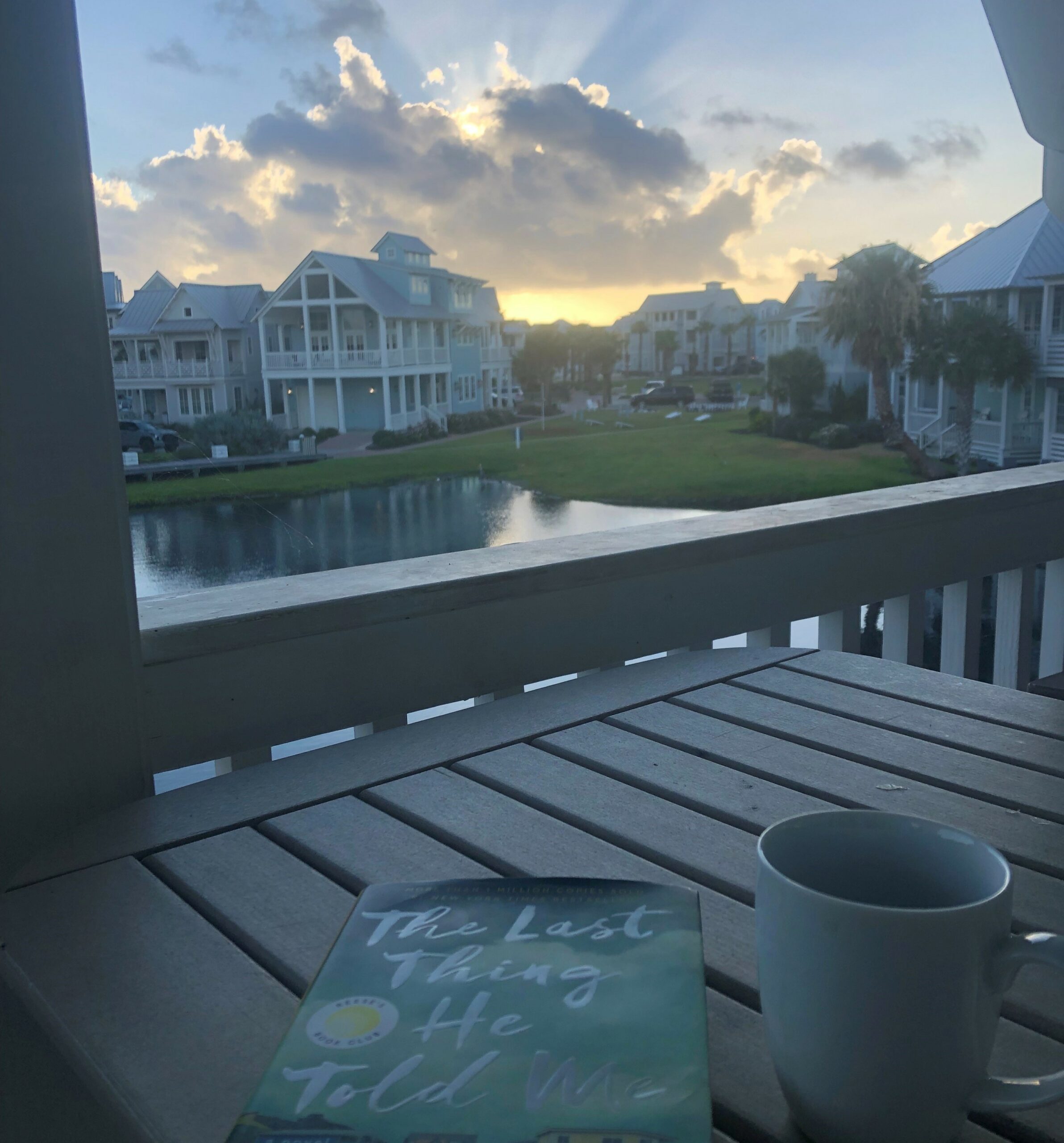The best part of my vacation last summer was reading early each morning. Before the sun rose, before the family stirred, before sandcastles and s’mores and game nights, I began each day in silence. Just me, a cup of coffee, and beach reads.
They were fiction books chosen on a whim. One was borrowed at the last minute, the other was found creased and worn in the office of the beach community. I read them lightheartedly, with no expectations – the opposite of the nonfiction that so intentionally fills my mind and schedule each workday. They offered no profound message, just fleeting delight. It was a refreshing change of pace.

I couldn’t help but notice, though.
I noticed an epigraph that perfectly set the tone for one book:
There are all kinds of happy endings. – Eve Lapin
I lingered on a first sentence that hooked me in immediately:
The biggest irony about that night is that I was always scared to fly.
I realized that chapter titles were gently moving me back and forth between the present and the past, and I admired how they slowly pieced together a story timeline:
Don’t Ask a Question You Don’t Want the Answer To
Twenty-Four Hours Earlier
These Are Not Your Friends
Six Weeks Ago
I let a cliff-hanger pique my curiosity and nudge me to the next chapter:
I unfold the paper.
Owen’s note is short. One line, its own puzzle.
“Protect her.”
And I was disappointed when I read the last sentence of a book and felt thrust too quickly into an author’s Acknowledgments. I wanted a few more moments to absorb a thoughtful ending.
Although they were fiction books, I couldn’t help but notice how both fiction and nonfiction rely on the same elements and techniques. The perfect epigraph, a well-crafted hook, page-turning chapter endings, and a finale that commands our full attention then eases us back to reality . . . These details satisfy the reader, no matter the genre.
Nonfiction authors, lose yourself in a book outside your genre this summer. There are literary lessons in everything we read. Let a fiction book blur the lines – and show you how to turn your true stories into compelling page-turners.
Ella Ritchie is the founder of Stellar Communications Houston, the “missing piece” in premium, end-to-end nonfiction publishing, marketing, and PR team for self-publishing memoirists, business leaders, nonprofits, families, and corporations. Subscribe to the blog at https://stellarwriter.com/blog.
